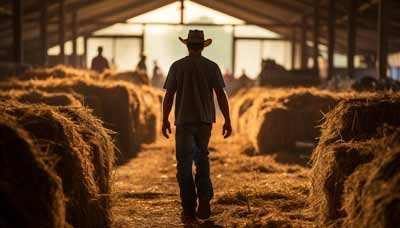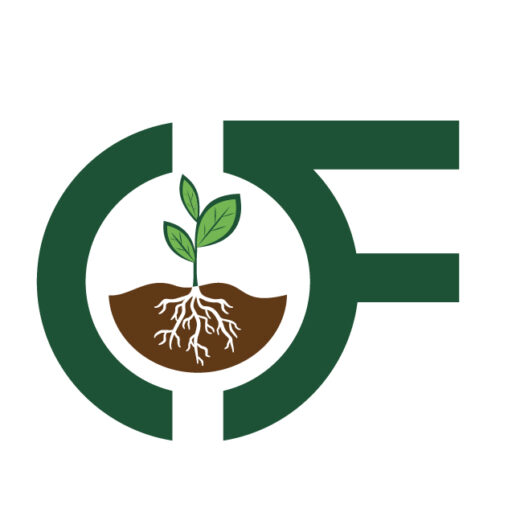The Richland Farmer's Guide to Choosing the Best Hay for Livestock
When it comes to maintaining healthy and productive livestock, selecting the right hay is crucial. Richland, WA, and the greater Tri-Cities area are home to many farms that depend on high-quality hay to keep their animals nourished year-round. Whether you’re raising cattle, horses, goats, or sheep, the quality of your hay directly impacts your livestock’s well-being, growth, and productivity.

(Farmer walking through hay bale storage barn.)
In this guide, we’ll walk you through the essentials of choosing the best hay for your livestock in Richland, WA. We’ll cover everything from the types of hay available, nutritional considerations, local hay suppliers, and sustainable practices that enhance both your farm and the environment. By the end of this guide, you’ll be equipped with the knowledge to make informed decisions on the hay that’s best for your animals and farm operations.
Understanding the Different Types of Hay
The first step in choosing the best hay for your livestock is understanding the different types of hay available. The most common types of hay grown and used in Richland, WA farms are:
1. Alfalfa Hay
Alfalfa is a legume hay that is high in protein and energy, making it ideal for animals with higher nutritional needs. Dairy cows, young growing animals, and lactating females benefit from the rich nutrient profile of alfalfa hay. It is also a popular choice for performance horses that require additional energy for work or competition. However, it may be too rich for animals with lower energy needs or those prone to conditions like founder.
2. Timothy Hay
Timothy hay is a grass hay that offers a balanced nutritional profile. It’s lower in protein and energy compared to alfalfa, making it suitable for maintenance diets for horses, cattle, and other livestock that don’t require extra protein. It is highly palatable, easy to digest, and often preferred by horse owners for its moderate energy content.
3. Orchard Grass Hay
Orchard grass is a soft, leafy hay that is more digestible than some other grass hays. Like timothy hay, orchard grass hay is a great choice for livestock that don’t need the high protein and energy levels found in alfalfa. It’s a popular option for horses, goats, and sheep, offering a great balance of fiber and nutrients.
4. Mixed Hays
Many farmers in the Tri-Cities region opt for hay blends like orchard grass and alfalfa. These blends combine the nutritional benefits of both types of hay, providing a balanced feed for livestock. For example, a mix of orchard grass and alfalfa can provide both the fiber and energy needed for horses, making it an ideal choice for many local farms.
Nutritional Considerations for Livestock
When selecting hay for livestock, it’s important to consider the specific nutritional needs of your animals. Different animals have varying dietary requirements, so choosing the appropriate hay can optimize their health and productivity.
Cattle
Cattle, especially those used for dairy production, require high-quality hay rich in protein and energy. Alfalfa hay is often recommended for dairy cows due to its high protein content, which supports milk production. Beef cattle, on the other hand, may not require as much protein, and a blend of grass hay like orchard grass or timothy may be more appropriate for maintaining their weight and muscle.
Horses
Horses need a consistent supply of high-fiber, moderate-energy hay to support their digestive systems. Grass hays like timothy or orchard grass are often preferred for adult horses, while young horses or those in training might benefit from a mix that includes alfalfa for added protein and energy.
Goats and Sheep
Goats and sheep are hardy animals that can thrive on a variety of hays. They do well on grass hays, but lactating goats or sheep producing wool may require a bit more protein, which can be found in legume hays like alfalfa.
Finding the Best Hay in Richland, WA
In Richland and the broader Tri-Cities community, finding a reliable source of high-quality hay is critical. Whether you’re sourcing from local farms or purchasing from farm supply stores, understanding where to find the best hay can help ensure that your livestock are getting the nutrition they need.
Local Hay Suppliers
Richland Farms are known for producing a variety of high-quality hay types, including alfalfa, timothy, and orchard grass. Many farmers in the area pride themselves on sustainable farming practices, which result in hay that is not only nutritious but also environmentally friendly.
You can often find local hay suppliers through farm supply stores in Richland, WA, or by connecting directly with farmers. By sourcing hay locally, you’re supporting the community, reducing transportation costs, and getting hay that’s been harvested in the same climate where your livestock are raised.
Farm Supply Stores in Richland, WA
For farmers who prefer the convenience of purchasing hay through established suppliers, farm supply stores in Richland, WA, offer a variety of hay types. Many stores offer hay testing services to ensure that you’re getting a product that meets your livestock’s nutritional needs. Some popular stores include:
- Kennewick Ranch & Home
- Bleyhl Co-op in Richland
- Country Mercantile
These stores offer a wide selection of hay products, feed, and farm supplies to support your livestock year-round.
Sustainable Farming and Hay Choices
Supporting sustainable farming practices is not only good for the environment, but it can also improve the quality of your hay. In Richland, WA, many local farms are embracing eco-friendly farming techniques that help preserve soil health and reduce water usage, resulting in better-quality hay for livestock.
Soil Health and Hay Quality
The quality of hay is directly tied to the health of the soil it’s grown in. Farmers in Richland are adopting practices like crop rotation, reduced tillage, and organic fertilizers to maintain nutrient-rich soil. Healthy soil produces more nutritious hay, ensuring that your livestock receive the best possible feed.
Water Conservation
Richland, WA, experiences periods of drought, making water conservation a top priority for local hay producers. Some farmers have implemented drip irrigation and other water-saving techniques to grow hay efficiently without depleting local water resources.
Storing Hay for Optimal Freshness
Once you’ve chosen the best hay for your livestock, proper storage is key to maintaining its quality. Improperly stored hay can lose its nutritional value or become moldy, which can harm your animals.
Ideal Storage Conditions
Store hay in a dry, well-ventilated area, off the ground, and protected from moisture. Many farmers use hay barns or tarps to keep their hay fresh throughout the season. If your hay gets wet, mold can form, which can lead to respiratory problems in animals and reduce feed quality.
Regular Hay Rotation
To ensure that your livestock are getting the best possible feed, use older hay first and rotate your stock regularly. Check hay bales for signs of mold or spoilage before feeding them to your animals.
Conclusion
Choosing the best hay for your livestock is essential for ensuring their health, growth, and productivity. In Richland, WA, farmers have access to a variety of high-quality hay types, from nutrient-rich alfalfa to balanced grass hays like timothy and orchard grass. By understanding the nutritional needs of your animals and sourcing hay from local, sustainable farms, you can provide your livestock with the best possible feed.
Whether you’re sourcing hay from Richland farms or local farm supply stores, this guide will help you make informed decisions to keep your livestock healthy and your farm running efficiently. As always, proper storage and sustainable practices will enhance both the quality of your hay and the long-term success of your farming operations.
For more information on sourcing the best hay in Richland, WA, contact Ohana Farms today and discover how our high-quality hay products can benefit your livestock and your farm.

